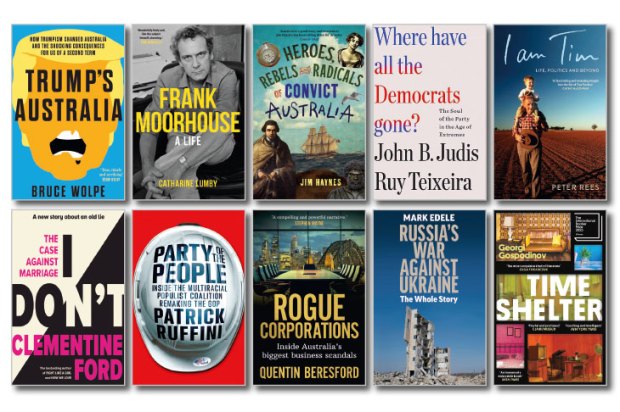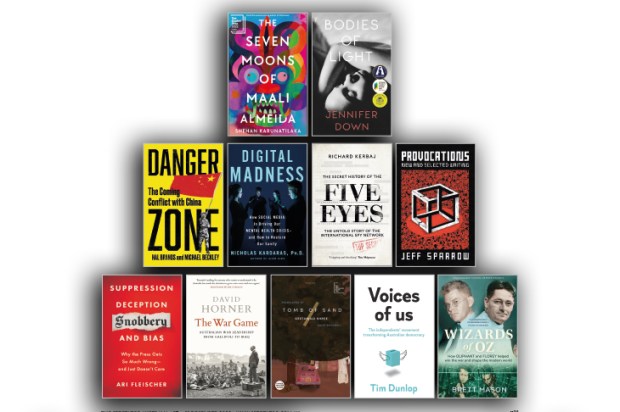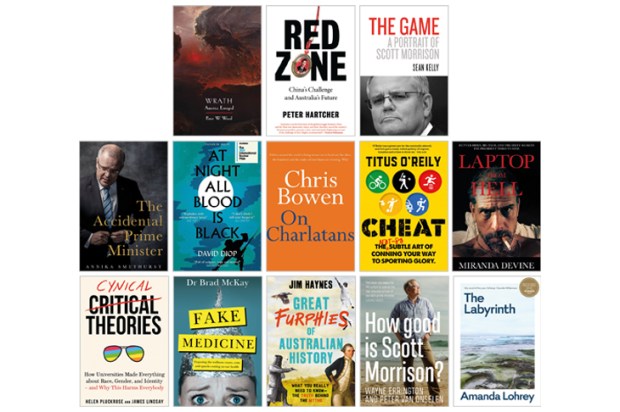The old saw about economics being a dismal science turns out, on the evidence of this short but interesting piece of work, to be half-right. The field is pretty dismal:
everything that seems good contains the seeds of disaster, which will sprout, if not soon, then eventually. So the resources boom that was an important part of Australia’s decade of economic success, starting in the mid-1990s, was, according to Charlton, a mixed blessing.
An economic adviser to Kevin Rudd — although he actually also has some
solid qualifications — Charlton does not say straight out that the period of
prosperity was all China’s doing, nothing
to do with the Howard government. But there are times when he comes close. He points to China’s demand for resources, especially iron and coal, as it tried to catapult itself into the front rank of economic powers, with a massive government-led investment drive. The result was a growth surge as the Chinese economy was restructured, with a huge infrastructure programme and a massive shift of population to the cities.
For Australia, it meant a flood of export income and a windfall for government coffers. There were, of course, losers (another dismal part of the science). Skills shortages, and a consequent rise in wages, developed as the mines sucked in people. The currency appreciated, making life difficult for the non-resources sectors, especially manufacturing and tourism.
Well, yes, but it is easy to overstate the case. For example, the overmuscular dollar was a factor in the decision of Holden to pack up, but it was not the only reason. The auto industry had been supported by taxpayers for six decades or so: surely even Charlton would accept that there is a time to realise that the idea isn’t working, currency issues or no.
The problem is that Charlton focuses on the problems generated by the mining boom, without much regard to the benefits. Is he saying that a broad rise in wages is a bad thing? Does he believe that all the resources should be left in the ground
so tourism operators in Cairns can have it easier?
He says that the Howard government wasted much of the revenue, through spending and tax cuts. For those of us who remember it — and it was not that long ago — this sounds like historical revisionism. At the time, much of the criticism directed at the Howard government from the Left related to not spending enough, not to being too generous. When Howard and Costello opened the chequebook in their latter budgets, it was expressly as a means of spreading the benefits of the boom.
Maybe Charlton wasn’t in the country at the time, but at least he should be aware that the Howard government left office with a surplus in hand and assets in the bank. Strangely, when Charlton looks at government expenditure he ends the data series in 2007. This seems like deliberately ignoring the blow-out period that resulted in an avalanche of deficits and debt — of which he was a part, of course.
Should the Coalition government have saved more? Possibly, but the most likely outcome would have been that the Labor government would have simply spent it. And then started to borrow.
Of course, levels of government spending would matter less if there was a guarantee of escalating receipts based on ever-rising Chinese demand. But Charlton notes that the ‘investment model’ is inherently unsustainable. It has been tried many times — Brazil is a good parallel — and always ends up running out of stream. It also leads to a remarkable misallocation of capital and resources. Charlton has a good time talking about China’s new, empty cities — some designed as replicas of historical European precincts — and highways leading nowhere.
Charlton is not a doomsayer predicting a China collapse, although he accepts
that it is an outside possibility. He notes
that there is still a good deal of unmet demand in China, so the ore ships are not going to run aground next week or next month. Most of all, the econocrats in Beijing are aware of the limitations of the model and are trying to steer the country towards
a more consumer-driven system. This will not be easy, especially as the planners appear equally committed to a highly managed currency. But it is not as if the government is merely plunging forward, eyes wide shut.
Nevertheless, a marked slowdown in Chinese resource demand appears inevitable. The big miners in Australia are well aware of this and are looking for new markets, as well as ways to consolidate their positions in China. The contraction, however and whenever it comes, will not be a surprise, at least to the market players.
But it might be a shock to the Australian government and people, Charlton says. We must be prepared to live within our means, he concludes. Work smarter, save more, look to the future. Wait, is this a senior Ruddite talking? When did he convert from gung-ho Keynesian to balance-the-books conservative? Or is all this just a roundabout way of attacking the Howard government, and setting up the Abbott government for I-told-you-so criticism?
It would be nice if Charlton mumbled an apology for his contribution to the 2007-13 debacle somewhere in this essay, but that might be too much to ask. In any case, he raises some important flags about the future, and offers an interesting analytical perspective, even if flawed by partisan leanings. It should be taken with a dose of salt, but it is worth reading.
Got something to add? Join the discussion and comment below.
Get 10 issues for just $10
Subscribe to The Spectator Australia today for the next 10 magazine issues, plus full online access, for just $10.
You might disagree with half of it, but you’ll enjoy reading all of it. Try your first month for free, then just $2 a week for the remainder of your first year.













Comments
Don't miss out
Join the conversation with other Spectator Australia readers. Subscribe to leave a comment.
SUBSCRIBEAlready a subscriber? Log in